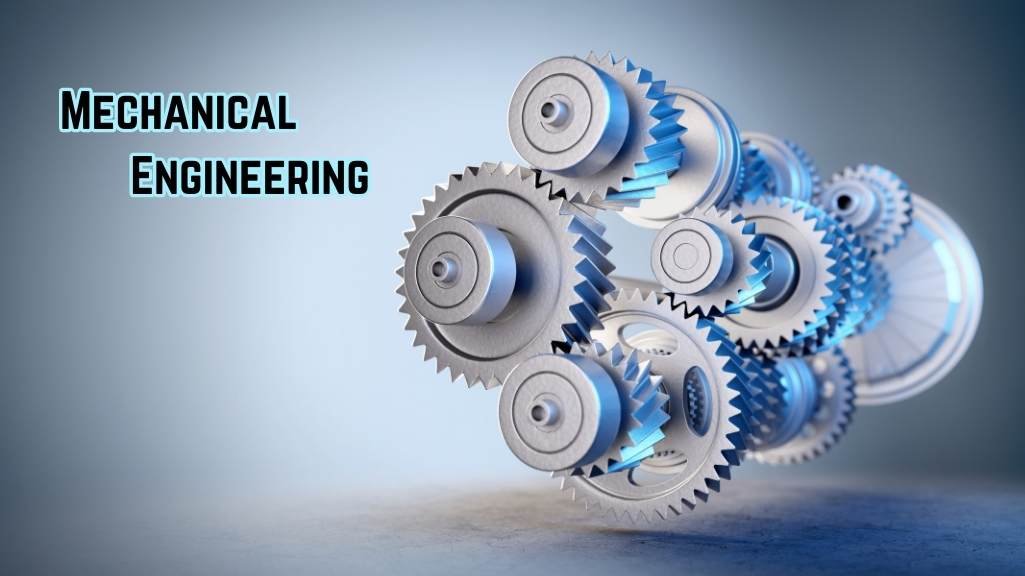Mechanical Engineering: Harnessing the Power of Innovation
Vihaan Disouza
. 2 min read
Mechanical engineering is a multidisciplinary branch of engineering that encompasses the design, analysis, manufacturing, maintenance, and even programming of mechanical systems. It plays a crucial role in various industries, including automotive, aerospace, energy, manufacturing, and robotics. Mechanical engineers are at the forefront of technological advancements, utilizing their skills not only in mechanics and materials science but also in programming to create innovative solutions that shape the world around us. By leveraging programming languages and software tools, mechanical engineers develop control algorithms, simulate system behavior, and optimize performance, enabling them to push the boundaries of what's possible in their field.

Key Areas of Focus
- Design and Analysis: Mechanical engineers use computer-aided design (CAD) tools and simulation software to create and evaluate mechanical components and systems. They ensure that designs meet performance, safety, and efficiency requirements, employing principles of mechanics, materials science, and thermodynamics.
- Manufacturing and Production: Mechanical engineers contribute to the manufacturing process by developing efficient production methods, optimizing workflows, and implementing quality control measures. They work with diverse materials and production techniques to ensure cost-effective and reliable manufacturing processes.
- Robotics and Automation: Mechanical engineers play a crucial role in the development of robotics and automation systems. They design robotic mechanisms, develop control algorithms, and integrate various technologies to enhance productivity, safety, and precision in industrial and everyday applications.
- Energy Systems: Mechanical engineers are involved in the design and optimization of energy systems. They work on renewable energy technologies, such as wind turbines and solar panels, as well as traditional power generation systems like internal combustion engines and steam turbines. Their focus is on maximizing efficiency, reducing environmental impact, and exploring sustainable energy sources.
- Automotive Engineering: Mechanical engineers contribute significantly to the automotive industry. They design vehicle components, analyze crashworthiness, develop propulsion systems, and improve fuel efficiency. In recent years, mechanical engineers have played a pivotal role in the development of electric and autonomous vehicles, revolutionizing transportation.
- HVAC and Thermal Systems: Mechanical engineers are involved in the design and optimization of heating, ventilation, and air conditioning (HVAC) systems. They ensure indoor comfort, energy efficiency, and environmental sustainability by integrating innovative technologies and applying thermodynamics principles to HVAC systems.
- Materials Science and Engineering: Mechanical engineers work with a wide range of materials, including metals, polymers, composites, and ceramics. They study material properties, develop new materials, and determine the most suitable materials for specific applications, considering factors such as strength, durability, and cost-effectiveness.
Challenges and Future Trends
Mechanical engineering faces several challenges and is influenced by emerging trends that shape its future:
- Sustainability: With increasing concerns about climate change and environmental impact, mechanical engineers are focusing on sustainable design and manufacturing practices. They strive to develop energy-efficient systems, explore renewable energy sources, and minimize waste generation.
- Advanced Manufacturing: The rise of additive manufacturing (3D printing), nanotechnology, and advanced materials is transforming the manufacturing landscape. Mechanical engineers are at the forefront of these technologies, exploring their applications, improving process efficiency, and developing new materials.
- Industry 4.0: The integration of digital technologies, automation, and data analytics is driving the fourth industrial revolution. Mechanical engineers are embracing smart manufacturing, cyber-physical systems, and the Internet of Things (IoT) to optimize production processes, enhance product quality, and enable predictive maintenance.
- Electric and Autonomous Vehicles: The automotive industry is witnessing a significant shift towards electric and autonomous vehicles. Mechanical engineers are working on advanced battery technologies, electric drivetrains, and developing autonomous systems that ensure safety and reliability.
Conclusion
Mechanical engineering is a diverse and dynamic field that continues to evolve with technological advancements. From designing innovative solutions to addressing sustainability challenges, mechanical engineers play a vital role in shaping our future. With their multidisciplinary knowledge and problem-solving skills, they contribute to various industries, pushing the boundaries of innovation and improving the quality of life for people around the world.

